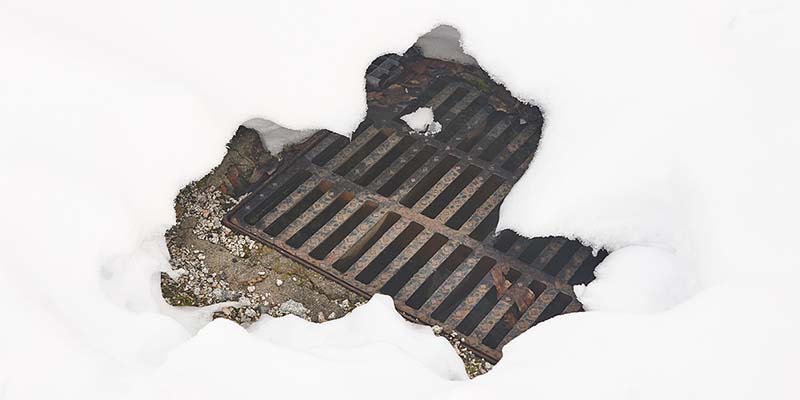
Winter snow puts a white coat over every surface that makes for beautiful photos and fun activities. But, as it melts, it can impact the environment. Standing and flowing water on the ground can pick up all kinds of debris. Pollutants such as dog waste, litter, and especially deicing salts and chemicals on the ground, find their way into nearby streams.
Follow these tips for managing your property for the winter stormwater season:
- When piling your snow after shoveling and plowing, choose locations where the snow will have the most opportunity to infiltrate instead of becoming stormwater runoff. Pile your snow in areas where you don’t usually have ponding in the spring rains, on relatively flat areas, and away from sensitive areas like streams, ponds, and your private septic system if you have one.
- Use deicing chemicals and salts sparingly. Use only what you need to make your walkways and driveways safe. Again, avoid those sensitive areas near waterways.
- Help keep the nearest storm drains clean. Do not pile snow on storm drains and make sure your plow service is not piling snow over the drains too.
- If possible wait until the spring for outdoor construction projects when you can establish new vegetation that will reduce soil loss and sediment runoff.
- Pickup your dog’s waste that was left in the snow. Don’t wait for a snow melt or spring to come around.
- Clear your downspouts, allowing for melting roof snow to flow and not collect at your foundation.
- Plan to improve balding or eroding areas on your property this spring. Plants like native grasses and meadow plants or native trees and shrubs can slow and stop erosion.
For more information, contact the City of Mentor Building and Engineering Department at (440) 255-1100.
